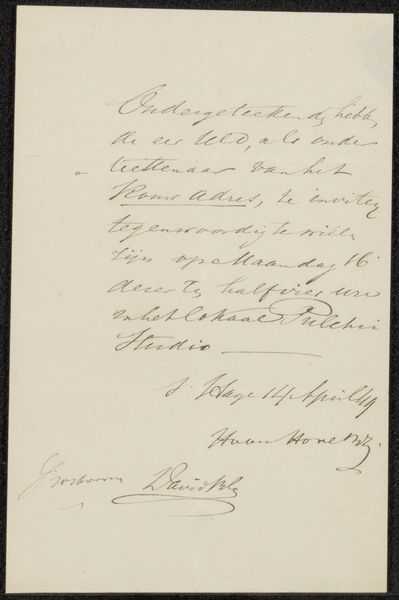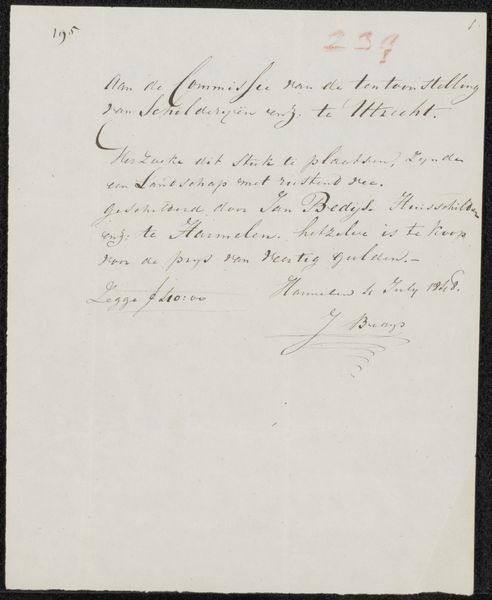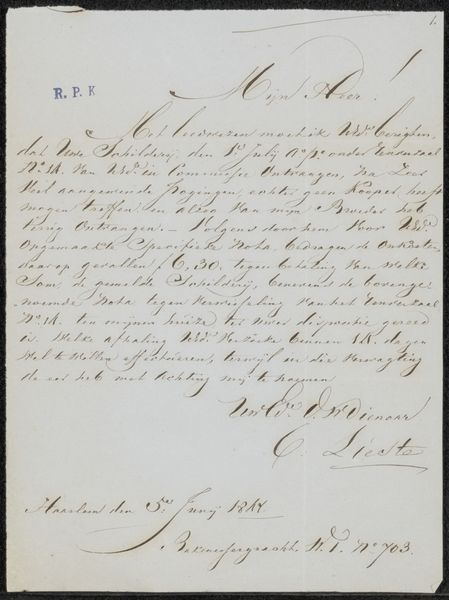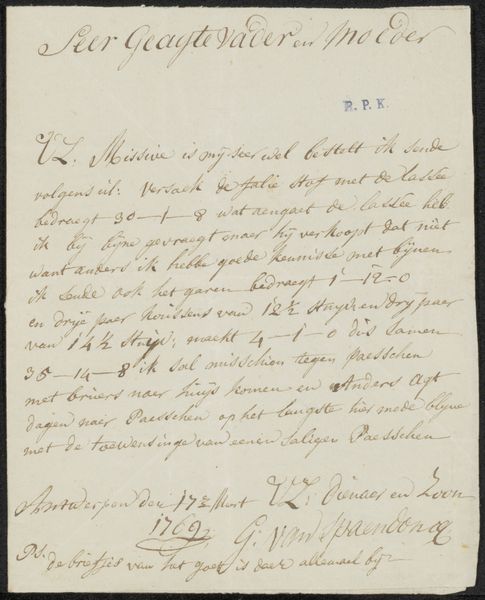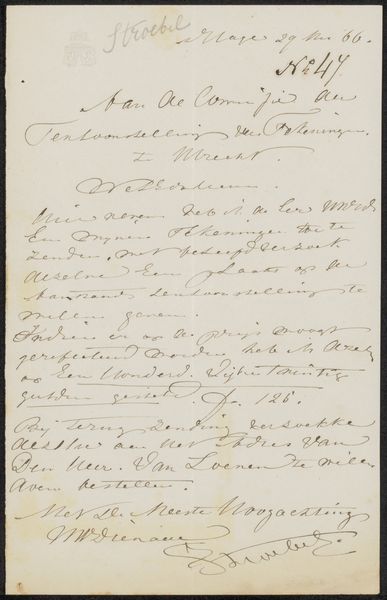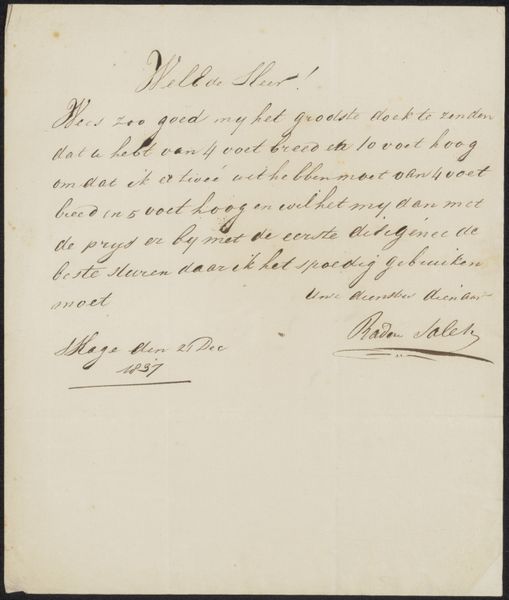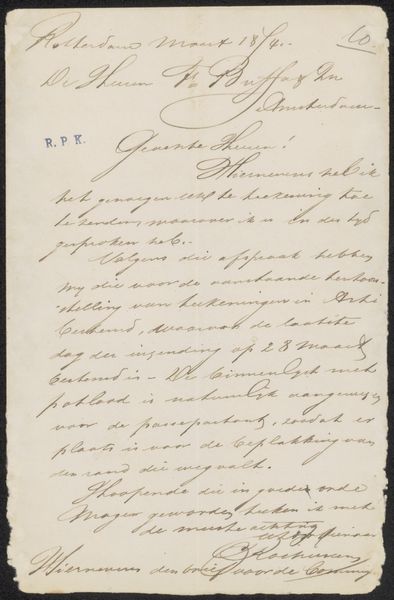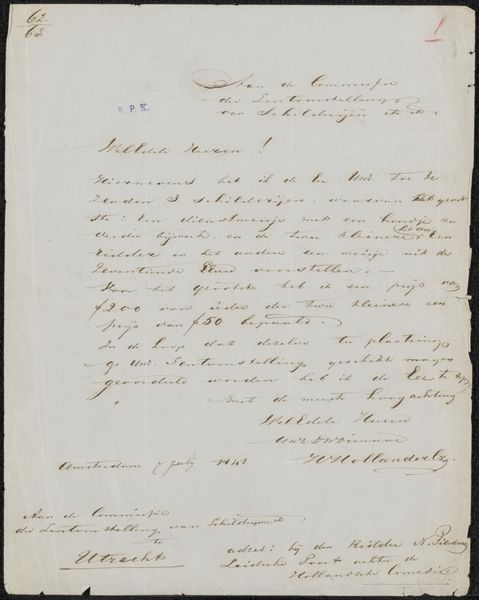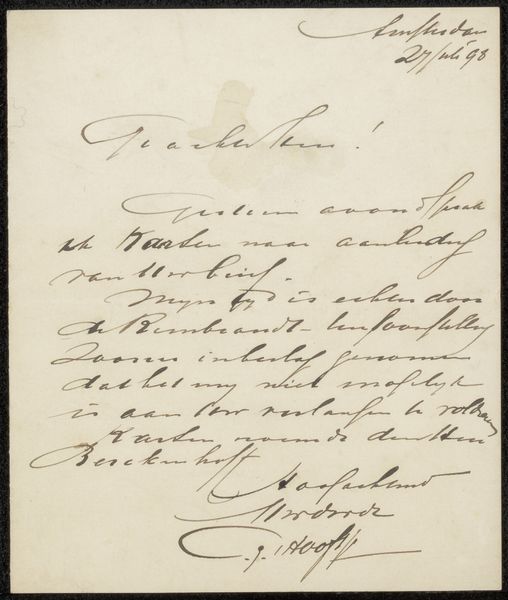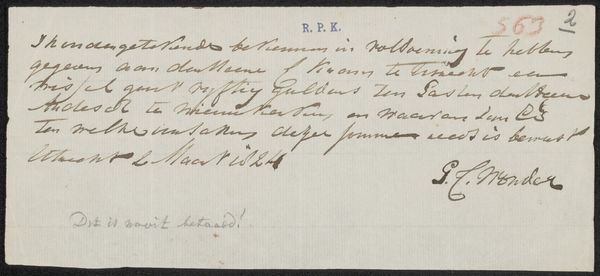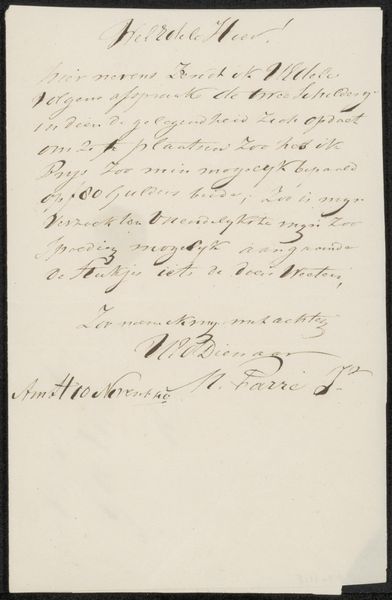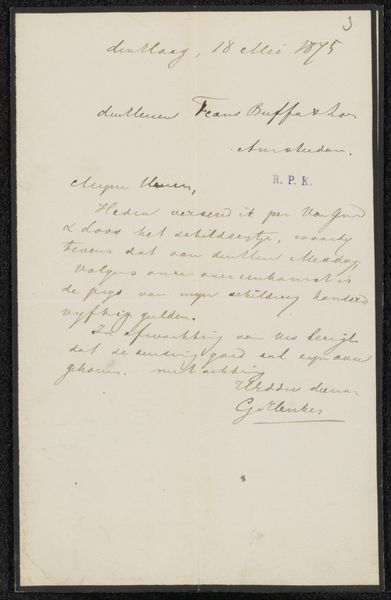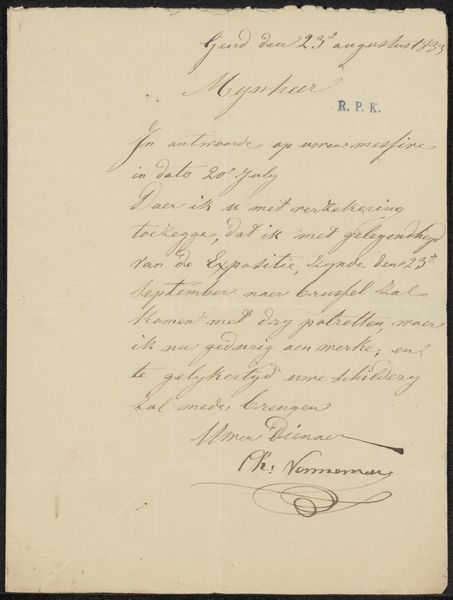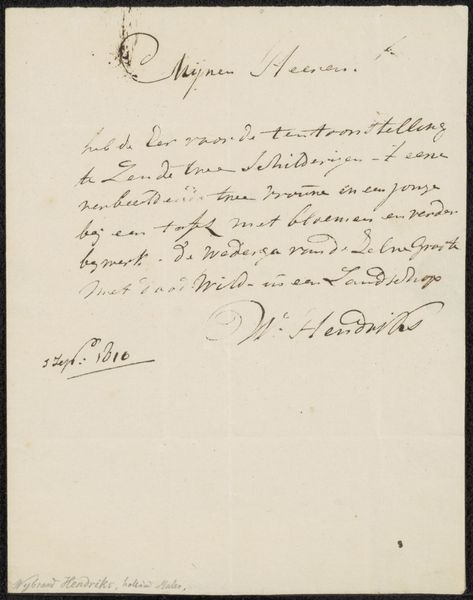
drawing, ink, pen
#
drawing
#
pen drawing
#
pen sketch
#
hand drawn type
#
personal sketchbook
#
ink
#
ink drawing experimentation
#
romanticism
#
pen-ink sketch
#
ink colored
#
pen work
#
sketchbook drawing
#
pen
#
sketchbook art
#
calligraphy
Copyright: Rijks Museum: Open Domain
Editor: Here we have Joseph Kayser's "Brief aan Jan Weissenbruch," likely from 1847 to 1849, created with pen and ink. It’s a dense page of handwriting, quite evocative in its intimacy, like stumbling upon someone’s private thoughts. What symbols or underlying ideas do you observe here? Curator: This "Brief" isn't just handwriting; it's a potent symbol of connection. The handwritten letter, especially from this era, carries emotional weight vastly different from a typed message today. The ink itself, its color and the pressure applied, become signifiers. Do you notice how the flourishes add a layer of personality, even vulnerability? Editor: Absolutely! The loops and swirls seem almost like a visual representation of the writer’s feelings. It feels very intentional. Curator: Exactly! The medium becomes the message. Think about the cultural memory embedded in this form. Before mass communication, letters were lifelines, containing news, affection, and crucial decisions. Kayser's choice of a handwritten form, its painstaking creation, speaks volumes about the intended recipient and the gravity of the communication. Even the splatters of ink can be interpreted. What might they represent to you? Editor: Perhaps moments of passion or frustration in the writing process, adding another layer of humanity. So it's not just the words, but the whole artifact that matters. Curator: Precisely. The letter becomes a multi-layered symbol, hinting at social structures, personal relationships, and the weight of communication itself. We see echoes of Romanticism, valuing feeling and individuality. Understanding its symbols lets us appreciate Kayser’s intent and the cultural context. Editor: This has broadened my understanding. It’s more than just a note; it is a piece of someone’s history. Curator: Indeed. Every stroke, every imperfection adds depth to our understanding of its emotional landscape.
Comments
No comments
Be the first to comment and join the conversation on the ultimate creative platform.
